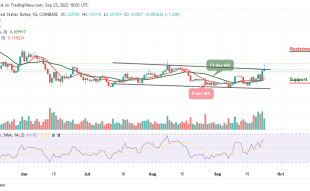Join Our Telegram channel to stay up to date on breaking news coverage
A New York court decided on Thursday that the U.S. Internal Revenue Service (IRS) has been given permission to serve M.Y. Safra Bank with a “John Doe” summons. Upon receiving the summons, the bank will be required to provide information regarding any customers who may have neglected to declare and pay taxes on cryptocurrency transactions made through premier dealer SFOX.
The IRS cited “serious tax compliance problems” pertaining to cryptocurrency transactions performed through the SFOX platform in its petition in support of the summons.
In a statement, U.S. Attorney Damian Williams said that taxpayers who use cryptocurrencies “should understand that income and gains from cryptocurrency transactions are taxable,” and that the information requested by the summons “will help to ensure that cryptocurrency owners are complying with tax laws.”
SFOX connects cryptocurrency exchanges, over-the-counter (OTC) virtual currency brokers, and liquidity providers. Since 2015, it has registered over 175,000 customers who have transacted more than $12 billion in total.
In order to provide its customers with cash deposit accounts that are insured by the Federal Deposit Insurance Corporation and allow for the purchase and sale of digital assets, M.Y. Safra Bank teamed with SFOX in 2019.
According to IRS Commissioner Charles Rettig, “the government’s capacity to get third-party information on people failing to disclose their earnings from digital assets remains a crucial weapon in detecting tax fraudsters.” The court’s decision to issue the summons, in Rettig’s words, “reinforces our ongoing, major efforts to ensure that everyone pays their fair part.”
“Taxpayers making revenue from transactions involving digital assets need to comply with their filing and reporting obligations,” he continued.
IRS goes after crypto tax evaders
The IRS has already received permission from a U.S. court to gather information about customers who have engaged in bitcoin transactions.
The U.S. tax office was given permission to serve SFOX with a summons in August of this year, seeking for information regarding any “U.S. taxpayers who completed at least the equivalent of $20,000 in cryptocurrency transactions between 2016 and 2021 with or through SFOX.”
A person who was “supposedly participating in a Ponzi scam” and received almost $1 million in deposits through SFOX but failed to disclose it to the IRS in 2016, 2017, or 2018 was one of the people named in a petition. Other individuals are accused of depositing thousands of dollars’ worth of Bitcoin and other cryptocurrencies into SFOX accounts, exchanging them for dollars, and then transferring the cash to individual bank accounts without disclosing any profit or loss from the exchanges.
In 2017, judges authorized the IRS to serve Coinbase, a cryptocurrency exchange, with a “John Doe” summons. As a result, the business disclosed data on almost 14,000 of its users. Courts once more accepted “John Doe” summonses sent to cryptocurrency exchange Kraken and Circle, the creator of the stablecoin USDC, in April of last year.
Related
- IRS Calls for Tools to Investigate Privacy Coin Transactions
- Chainalysis: A startup that helps governments trace crypto
- IRS Outsources Crypto Tax Calculations to Third Parties
Join Our Telegram channel to stay up to date on breaking news coverage


